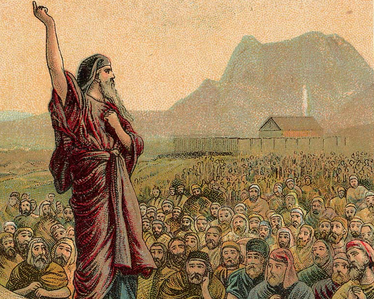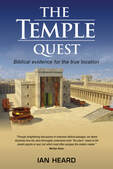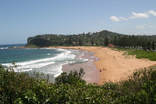
'That Moses was aware of the patriarchal significance of HaMakom becomes clear as we read our way through Deuteronomy—and especially chapter 12. For there, at least six times, Moses uses the now well-recognised name HaMakom as he instructs Joshua and the people about entering the land of promise and where they are to worship.
• Verse 5: ‘But you shall seek hamakom where the LORD your God chooses, out of all your tribes, to put His name for His dwelling place; and there you shall go.’
• Verses 10 & 11: ‘But when you cross over the Jordan and dwell in the land which the Lord your God is giving you to inherit, and He gives you rest from all your enemies round about, so that you dwell in safety, there will be hamakom where the Lord your God chooses to make His name abide. There you shall bring all that I command you: your burnt offerings, your
sacrifices, your tithes, the heave offerings of your hand, and all your choice offerings which you vow to the Lord.’
• Verses 13 & 14: ‘Take heed to yourself that you do not offer your burnt offerings in every place that you see; but in hamakom which the Lord chooses, in one of your tribes, there you shall offer your burnt offerings, and there you shall do all that I command you.’
• Verse 18: ‘…you must eat them before the Lord your God in hamakom which the Lord your God chooses…’
• Verse 21: ‘If hamakom where the Lord your God chooses to put his name is far from you…then you may eat within your gates…’
• Verse 26: ‘Only the holy things which you have, and your vowed offerings, you shall take and go to hamakom which the Lord chooses.’
These are but a few instances. You will find at least another dozen or more occasions of the use of HaMakom through chapters 13 to 18 of Deuteronomy…..
In Moses’ closing words and instructions to the priests and Joshua, he again
signifies it when he says in Deuteronomy 31:11… ‘When all Israel comes to appear before the Lord your God in hamakom which he chooses, you shall read this law before all Israel in their hearing.”
Later, at the dedication of the refurbished wall in Nehemiah we see...
‘…as Ezra blessed the Lord the
people said, “Amen, Amen” while lifting their hands. “and bowing their heads to worship the Lord’. Quite demonstrably this is at the temple. Neither Ezra nor Nehemiah, let alone the Priest, would have held this solemn assembly elsewhere. They knew what God had instructed through Moses; ‘When all Israel comes to appear before the Lord your God in hamakom which he chooses, you shall read this law before all Israel in their hearing’
Excerpts from
The Temple Quest
IAN HEARD
This material is protected by copyright.

 RSS Feed
RSS Feed
